Delivering faultless software is no longer just a competitive advantage; it’s a necessity in today’s fast-paced digital world. To meet rising quality standards, organisations are prioritising testers with industry-recognised software testing certifications. Whether hiring a skilled QA engineer, building a dedicated test automation team, or partnering with trusted software QA services, certified professionals ensure your software achieves top levels of performance, security, and reliability.
Trusted QA certifications include entry-level ISTQB Foundation (CTFL) and advanced Agile, cloud, and test automation programs. They boost software quality, improve testing efficiency, and support career growth. Knowing their benefits and how to earn them helps teams succeed.
💡 Here’s what you’ll learn:
📌 Why QA certifications are crucial for software quality and team efficiency.
📌 Top entry-level and advanced certifications like ISTQB and CSTE.
📌 How test automation certifications improve speed and accuracy.
📌 Key Agile and cloud testing credentials for modern DevOps teams.
📌 Easy steps to choose and earn the right software testing certification.
Why Software Testing Certifications Matter for Organisations
In the highly competitive software industry of today, quality assurance is a crucial business function rather than merely a department. That's why companies are increasingly prioritizing QA certification when hiring or evaluating their software QA services. Recognized certifications like ISTQB Certified Tester Foundation Level and Certified Software Tester (CSTE) provide a benchmark of technical skill, ensuring that test professionals are equipped with structured knowledge and up-to-date practices.
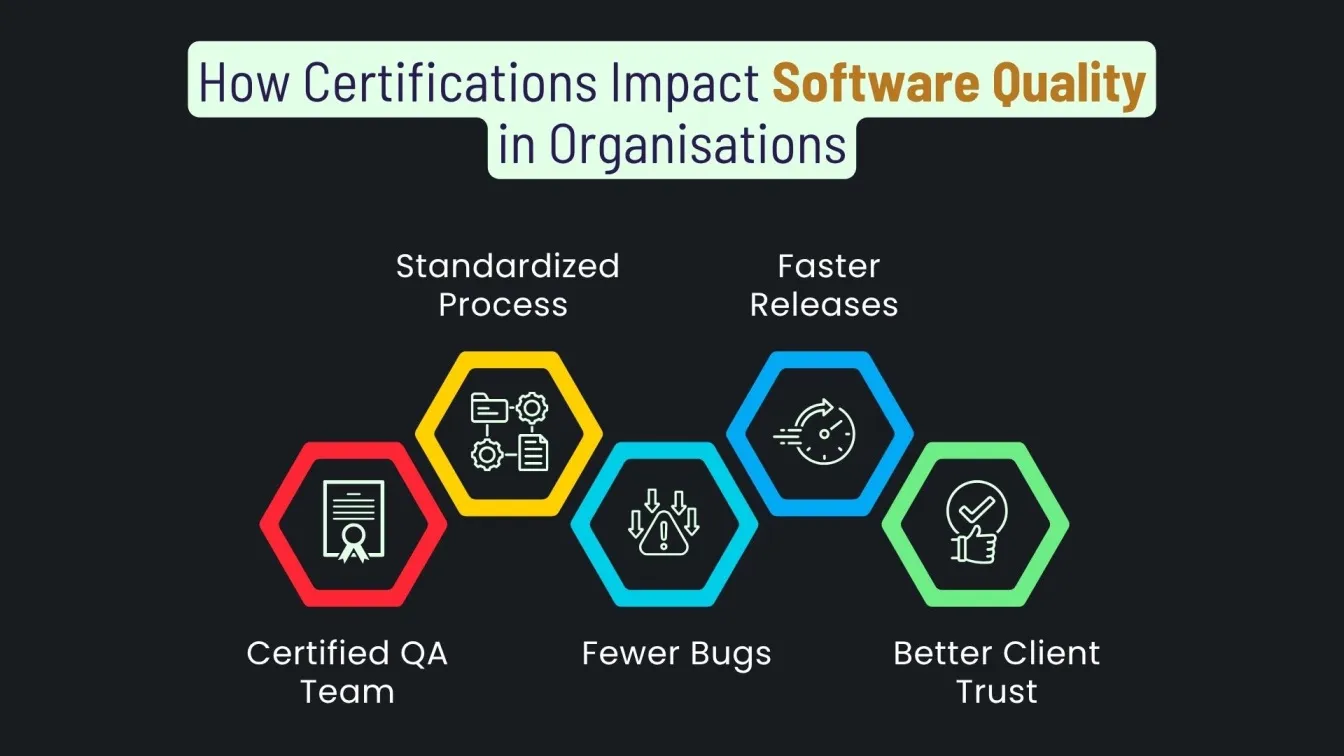
Certified professionals improve software testing services by using standard strategies and automation frameworks
Key Reasons Why Certifications Matter:
- Standardized QA Skills: Validates knowledge of QA concepts, tools, and techniques.
- Quality-Driven Culture: Ensures consistent and reliable testing across teams.
- Better Hiring Decisions: Easier to assess certified QA testers and software testers.
- Global Standards Compliance: Certifications like ISTQB meet international QA norms.
- Stronger QA Strategy: Enables scalable test automation with tools like Selenium and JMeter.
- Faster, Error-Free Releases: Reduces bugs through better test planning and execution.
This boosts QA software testing services, enhances software performance testing services, and ensures higher quality through effective software quality assurance testing services.
Benefits of Hiring Certified Test Engineers
Hiring certified test engineers is no longer optional for organizations aiming for software excellence. Certifications such as QA engineer certification, software tester certification, and ISTQB Certified Tester Foundation Level reflect a deep understanding of structured testing practices, including test planning, execution, reporting, and automation.
Certified professionals are also more likely to stay updated with evolving QA trends, including test automation tools, Agile testing, and penetration testing frameworks.
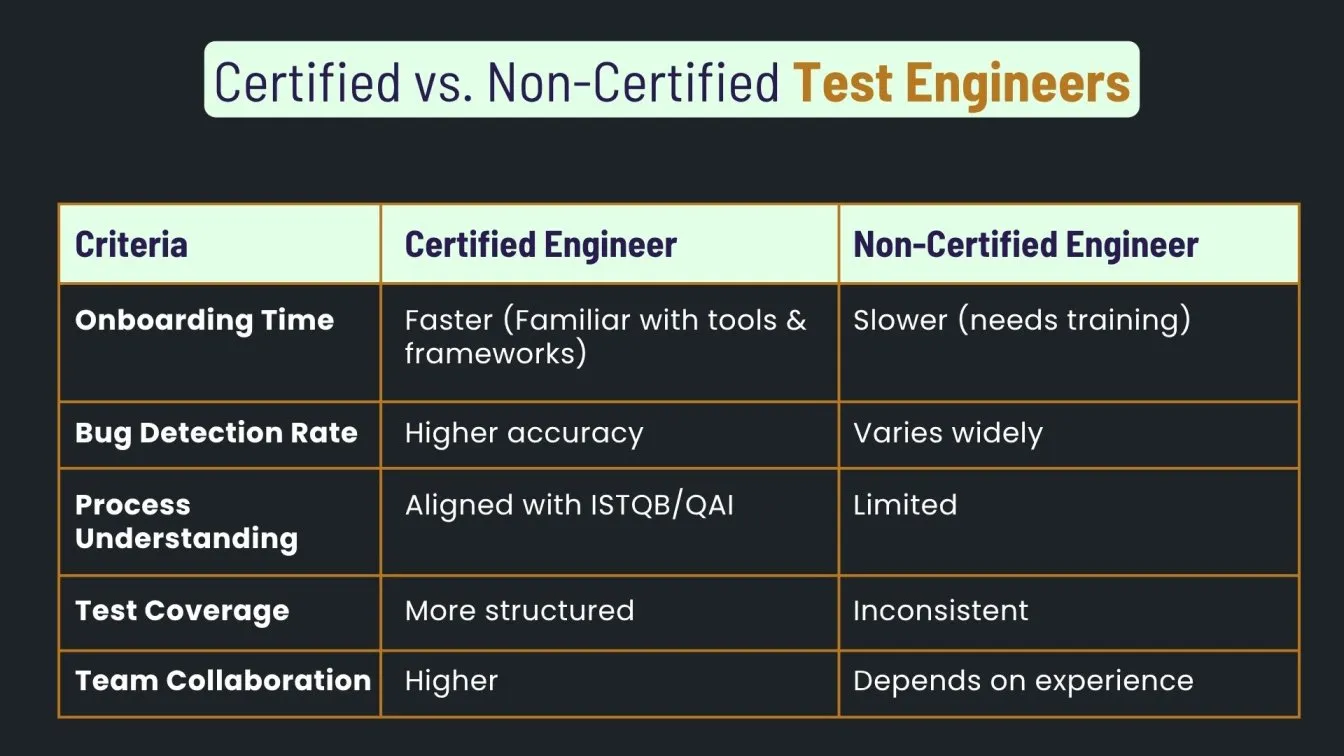
Benefits of Hiring Certified Test Engineers:
- Verified Expertise: A software quality tester with a QA certification course proves structured skills.
- Enhanced Test Automation: Certified engineers use strong test automation frameworks and tools like Selenium and TestNG.
- Aligned with Standards: Certifications support ongoing learning and meet global QA and ISTQB certification norms.
- Security Readiness: Penetration tester certification adds value in security and compliance testing.
- Faster Onboarding: Certified engineers need less training and can contribute quickly.
- Better QA Outcomes: Certified hires improve software QA testing, ensuring reliable and scalable apps.
Foundational Certifications for Entry-Level QA Roles
For aspiring QA professionals and junior software testers, starting with the right QA certification lays a strong foundation. Entry-level certifications like ISTQB Certified Tester Foundation Level (CTFL) and Certified Associate in Software Testing (CAST) validate core competencies in software QA testing, including test planning, design, execution, and defect management.

These certifications help candidates stand out in a competitive job market and provide employers with confidence in hiring testers who understand structured testing processes. For companies offering software QA services, hiring entry-level engineers with these credentials ensures quicker training and better team alignment.
ISTQB Foundation Level (CTFL)
One of the most well-known QA tester certifications in the world is the ISTQB Foundation Level (CTFL). It focuses on the fundamental principles of software testing and introduces terminology aligned with the ISTQB glossary.
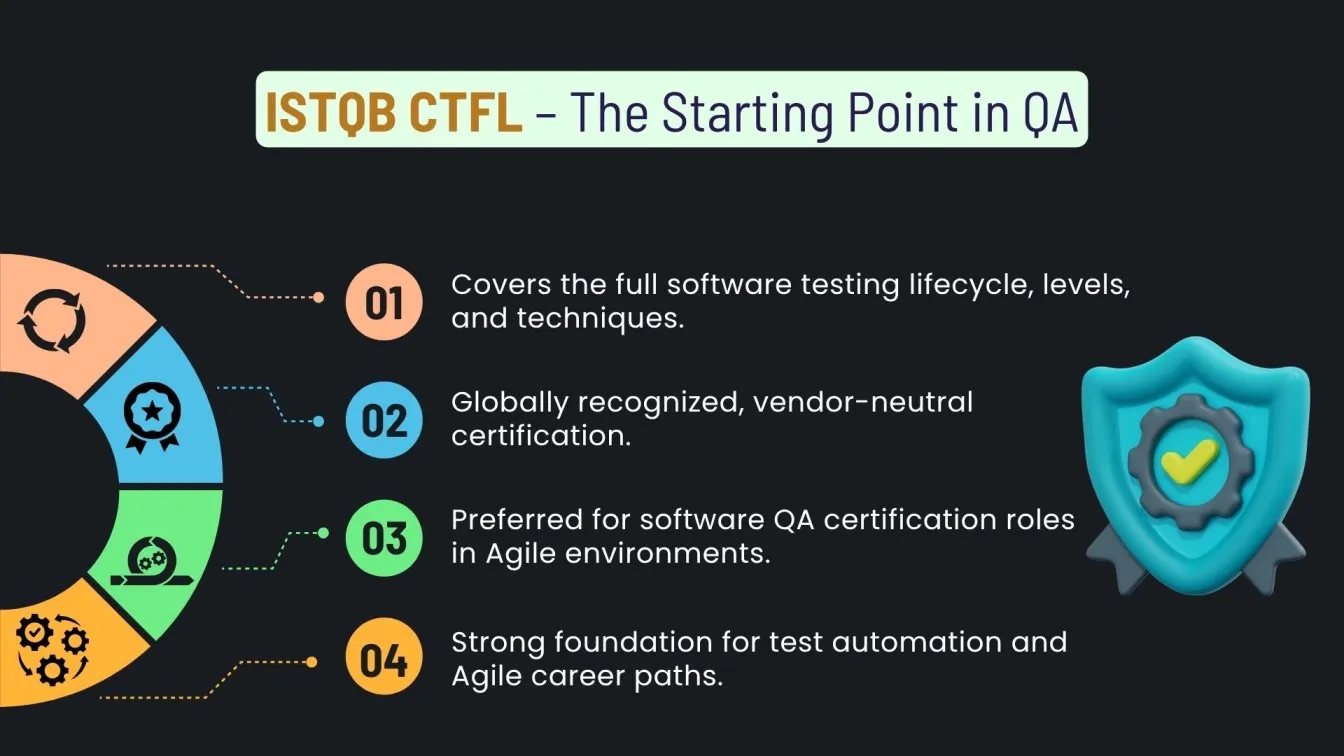
It’s often the first step before progressing to advanced levels like ISTQB Test Analyst or Test Manager certifications.
Certified Associate in Software Testing (CAST)
CAST, offered by the Quality Assurance Institute (QAI), is a highly respected certification aimed at beginners who have some formal education or experience in software development or testing.

Highlights of the CAST Certification:
- Focuses on QA principles, software development lifecycle (SDLC), and test documentation.
- Emphasizes real-world test planning and defect reporting.
- Excellent choice for those looking to work in software QA services or freelance QA projects.
- Acts as a gateway to advanced QAI certifications like CSTE or CMST.
Recognised Certifications for Test Analysts and Engineers
As QA professionals grow beyond foundational roles, mid-level certifications validate their expertise in designing and executing complex test strategies. Recognised credentials like ISTQB Advanced Test Analyst (CTAL-TA) and Certified Software Tester (CSTE) are tailored for experienced software quality testers and QA engineers looking to specialize in advanced test design, risk-based testing, and test leadership.
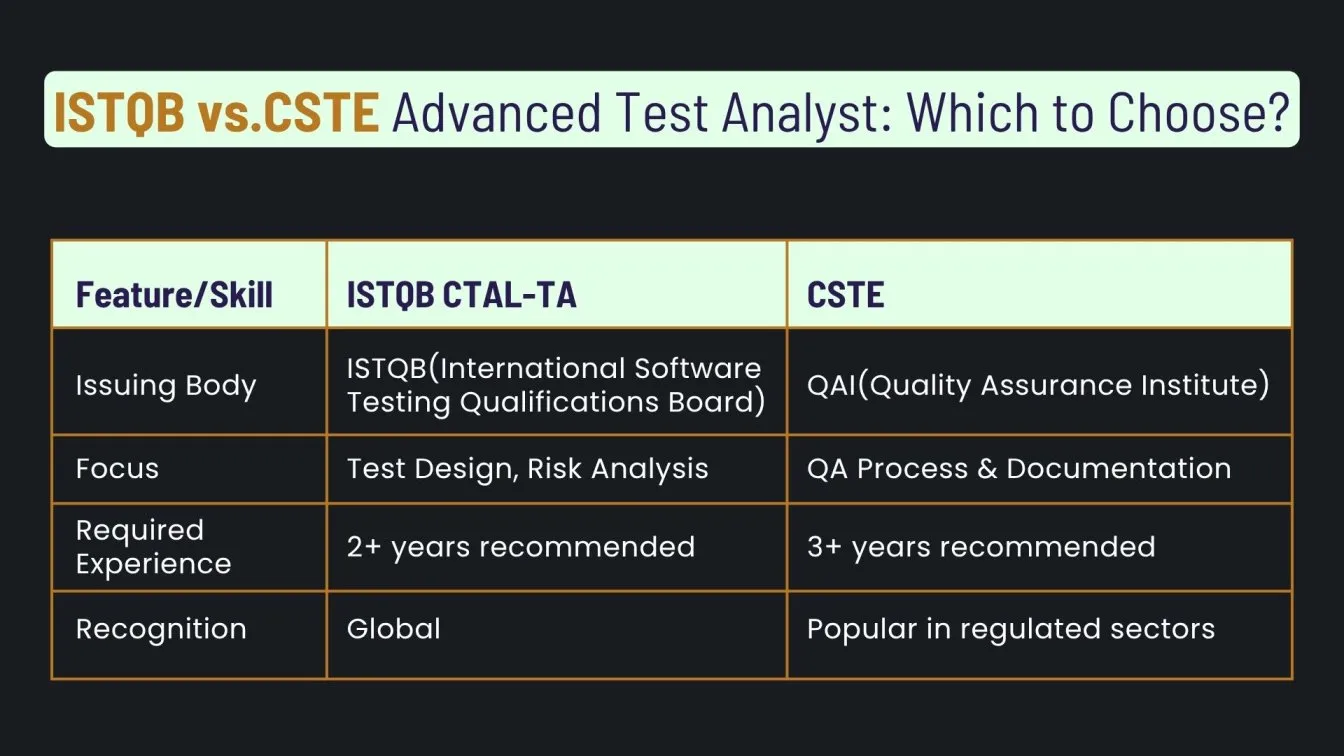
For organizations delivering high-end software QA services, hiring certified analysts ensures deeper test coverage, better automation strategies, and improved stakeholder communication.
ISTQB Advanced Test Analyst (CTAL-TA)
The ISTQB CTAL-TA certification is an advanced-level credential under the ISTQB testing certification hierarchy. It’s ideal for professionals with the ISTQB Foundation Level who are now handling analytical and test design responsibilities.
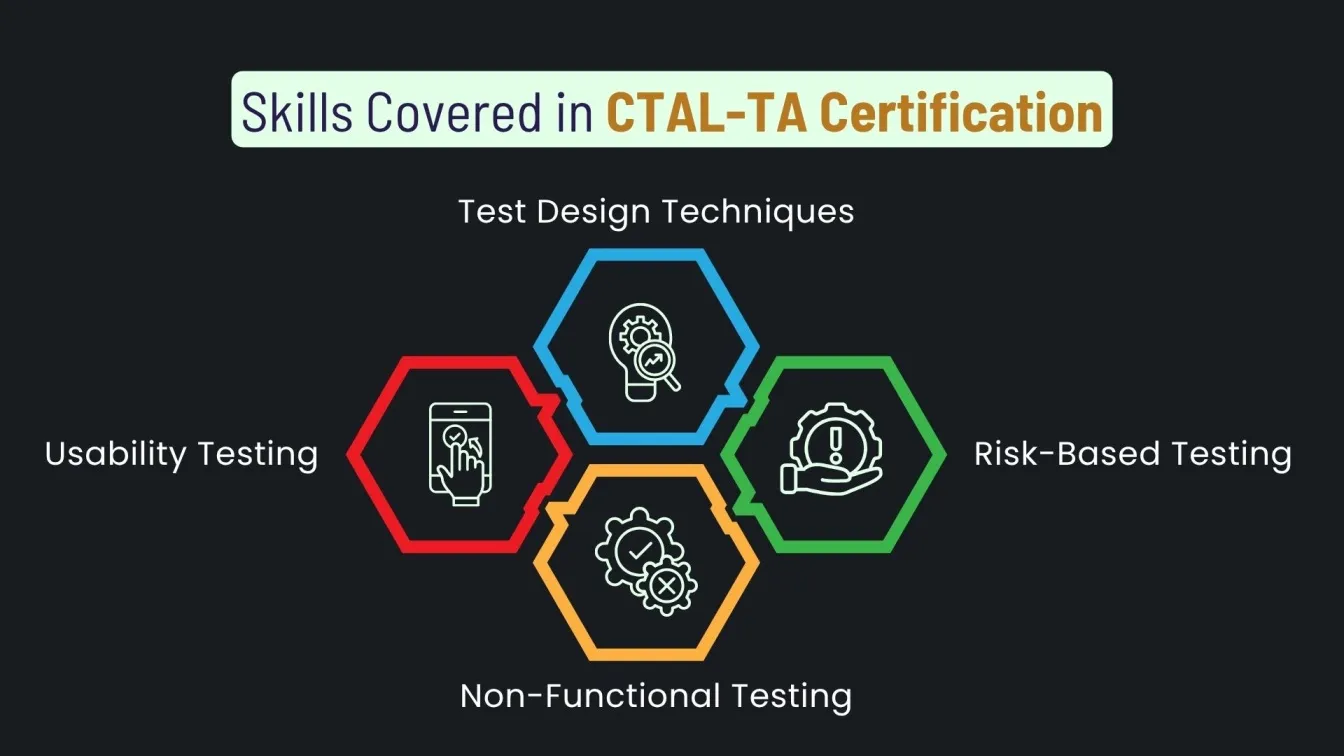
Highlights of the ISTQB Advanced Test Analyst (CTAL-TA) Certification:
- Focuses on advanced test techniques, requirements analysis, and defect taxonomy.
- Enhances skills in optimizing test cases for performance and automation integration.
- Designed for test engineers working in Agile, DevOps, or test automation frameworks.
- Valuable for roles involving high-risk domains like banking, healthcare, and insurance.
Certified Software Tester (CSTE)
The Certified Software Tester (CSTE) is issued by the Quality Assurance Institute (QAI) and is one of the most recognized credentials for professional software testers.
Certified Software Tester (CSTE) Certification:
- Requires both education and software development or quality assurance experience.
- Covers test planning, test execution, QA standards, metrics, and tools.
- Ideal for engineers involved in software test automation services or custom QA process setups.
- Validates a tester’s ability to ensure software meets business and user expectations.
Both certifications serve as stepping stones to senior roles and help QA professionals gain deeper credibility and confidence in their career paths.
Certifications for Test Leads and QA Managers
As software testing teams scale and grow, leadership becomes as important as execution. Certifications for Test Leads and QA Managers validate not only a candidate’s technical competence but also their strategic thinking, resource management, and decision-making abilities. Certifications like the ISTQB Advanced Test Manager and Certified Manager of Software Testing (CMST) prepare professionals to lead teams, manage complex testing programs, and implement efficient QA certification courses across organizations.

For businesses offering software QA services, employing certified managers ensures consistency, risk mitigation, and quality-first delivery across projects.
ISTQB Advanced Test Manager
The ISTQB Advanced Test Manager certification is designed for professionals responsible for managing testing activities across the lifecycle. It builds upon the foundational ISTQB Certified Tester path and dives deep into test management concepts.
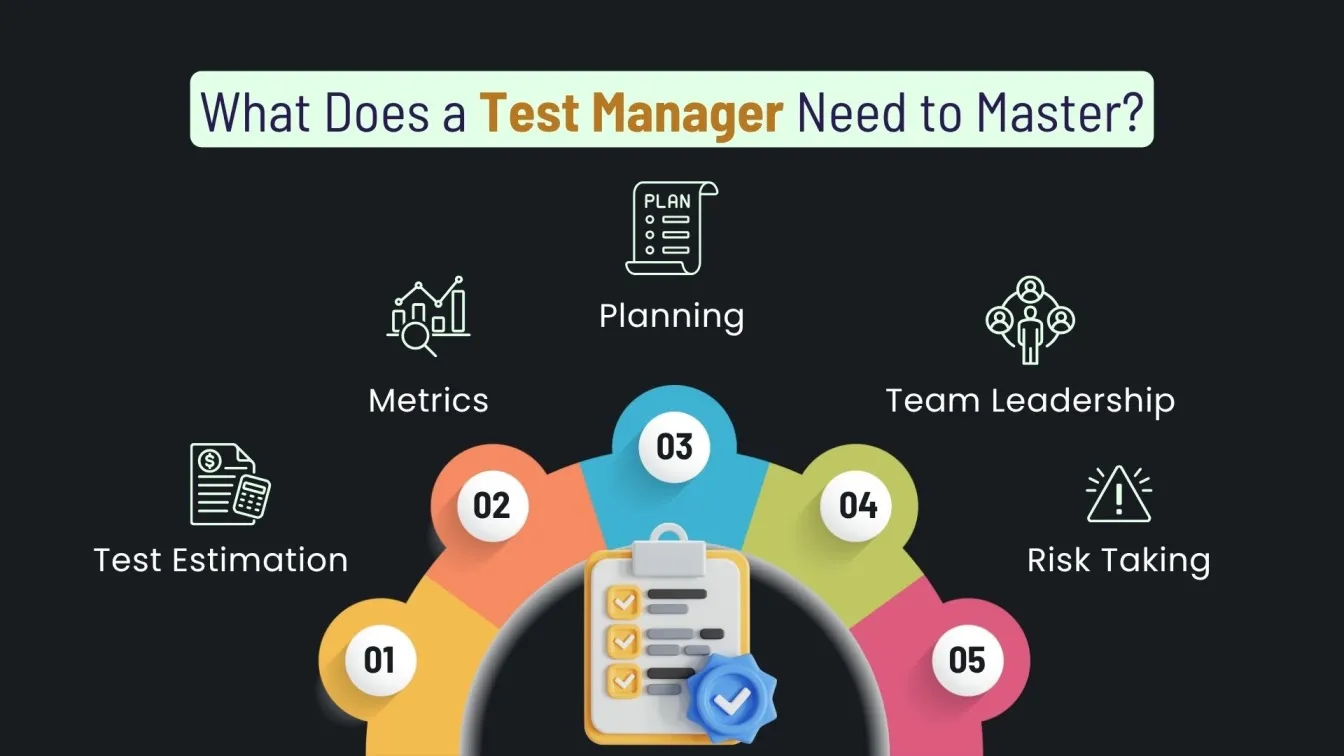
ISTQB Advanced Test Manager Certification:
- Covers test planning, risk analysis, estimation, team leadership, and metrics.
- Perfect for senior QA specialists overseeing extensive DevOps or Agile projects.
- Helps in implementing scalable test automation frameworks and governance models.
- Useful for coordinating testing KPIs with release and business objectives.
It’s one of the most sought-after ISTQB certifications for managerial roles.
Certified Manager of Software Testing (CMST)
The Certified Manager of Software Testing (CMST) by QAI targets seasoned test professionals transitioning into leadership and strategic roles.

Highlights of the Certified Manager of Software Testing (CMST) Certification:
- Focuses on QA leadership, project risk, communication, people management, and process improvement.
- Requires prior certification (like CSTE) and at least 4 years of software testing experience.
- Helps QA managers oversee everything from software test automation services to pen tester certification alignment.
- Empowers leaders to manage multi-disciplinary teams and handle cross-functional testing programs.
Both of these certifications provide the leadership depth necessary to ensure that testing teams contribute directly to product and business success.
In-Demand Certifications in Test Automation
With organizations embracing Agile and DevOps, test automation has become a cornerstone of modern QA strategy. Demand for professionals skilled in test automation frameworks, tools, and scripting languages has skyrocketed. Certifications such as Certified Software Test Automation Specialist (CSTAS) and Certified Tester Test Automation Engineer (CT-TAE) are becoming more and more common as a means of verifying these abilities. They ensure alignment with enterprise-grade software test automation services, cloud platforms, and CI/CD pipelines.
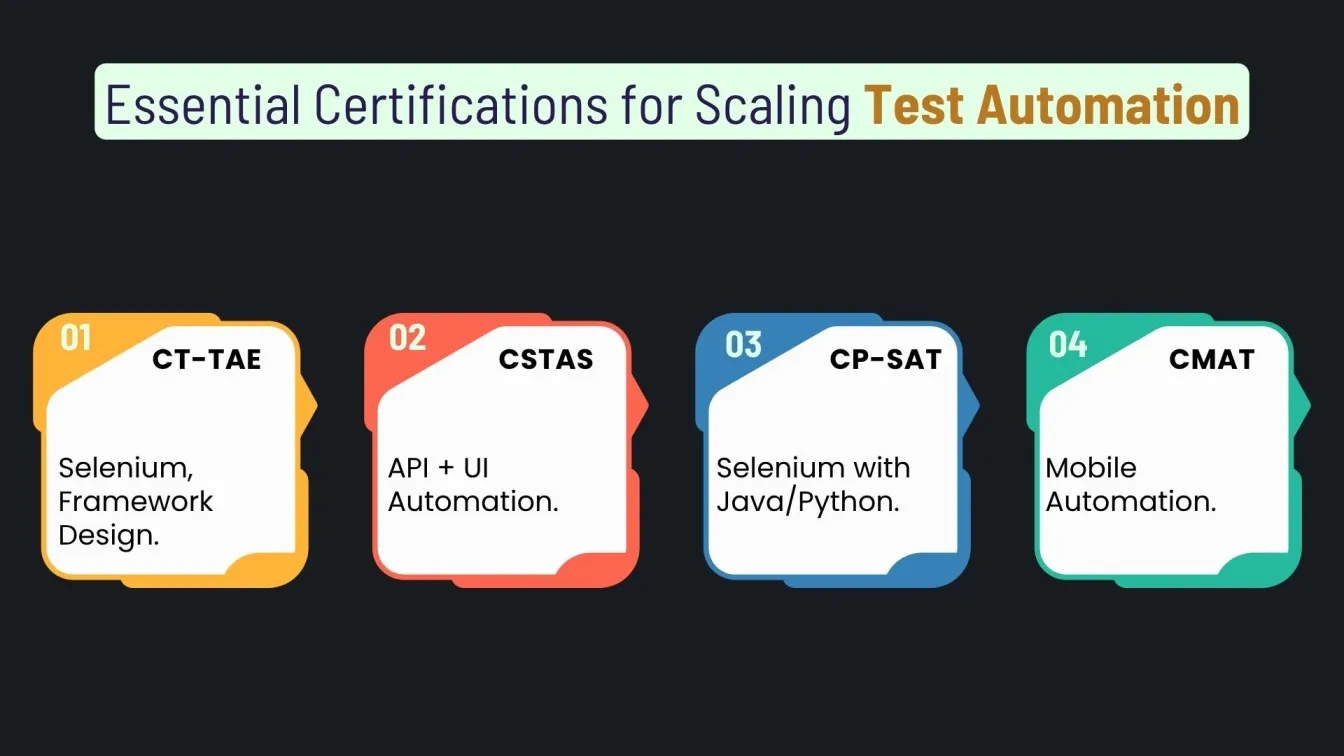
Hiring certified test automation engineers helps companies scale QA, reduce manual effort, and speed up delivery. With a solid test automation strategy, they support software developers, handle automation testing, and manage complex tasks as Technical Test Analysts, including projects involving Artificial Intelligence.
Certified Tester Test Automation Engineer (CT-TAE)
Offered by ISTQB, the CT-TAE certification is designed for testers with a solid foundation in QA who want to specialize in automation.
Certified Tester Test Automation Engineer (CT-TAE) Certification:
- Covers design, development, and maintenance of test automation frameworks.
- Teaches integration with tools like Selenium, Jenkins, and CI/CD pipelines.
- Emphasizes automation architecture, tool evaluation, and reusability of test assets.
- Built on the ISTQB certification foundation with a focus on modern testing environments.
This certification is perfect for QA professionals aiming to lead automation efforts within Agile or DevOps workflows.
Certified Software Test Automation Specialist (CSTAS)
The CSTAS, offered by the International Institute for Software Testing (IIST), focuses on practical automation skills across various environments.

Certified Software Test Automation Specialist (CSTAS) Certification:
- Strong emphasis on test automation tools selection and hands-on framework development.
- Ideal for engineers working with complex enterprise applications, microservices, or APIs.
- Teaches best practices for designing reusable, scalable software test automation scripts.
- Suitable for roles in both functional and non-functional test automation.
CSTAS is well-regarded among testers involved in end-to-end software QA testing projects that rely heavily on automation.
Agile and Cloud Testing Certifications to Consider
As more organizations shift to Agile development and cloud-based infrastructures, QA professionals must adapt their testing approaches accordingly. Certifications in Agile testing and cloud testing demonstrate a tester’s ability to operate in fast-paced, distributed, and continuous delivery environments.
Whether you're working on a Scrum team, managing cloud deployments, or contributing to DevOps pipelines, certifications like ISTQB Agile Tester and Certified Cloud Tester prove your readiness to test under modern software engineering models. These credentials are increasingly sought after in companies offering software QA services and test automation services on cloud platforms.
ISTQB Agile Tester or Certified Cloud Tester
ISTQB Agile Tester Extension:
The ISTQB Agile Tester certification is ideal for testers working in Agile teams. It focuses on principles like iterative development, collaborative testing, and flexible test planning, and continuous feedback to support fast-paced delivery cycles.
Certified Cloud Tester (CCT):
The Certified Cloud Tester certification is designed for QA professionals testing cloud-based applications and environments. It covers cloud service models, testing strategies for SaaS/PaaS/IaaS, performance and security testing in the cloud, and validation of scalable, multi-tenant architectures.
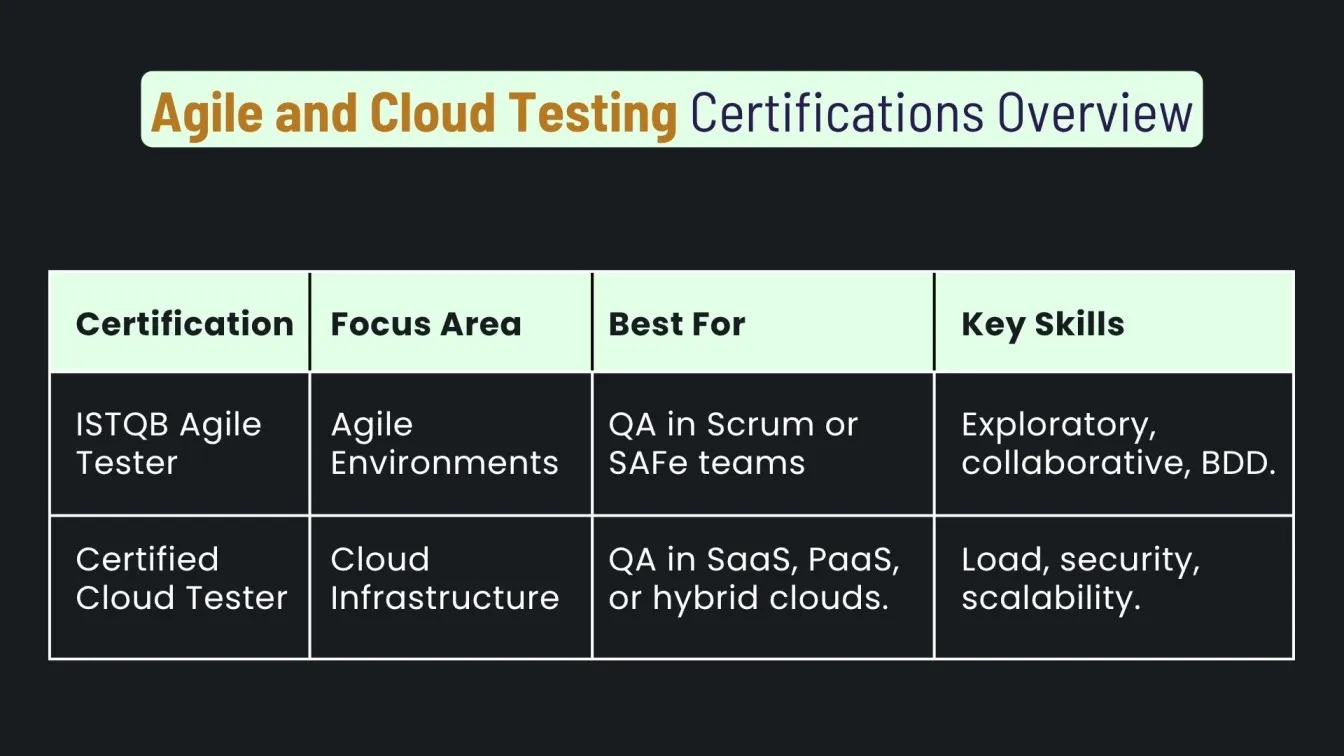
ISTQB Agile Tester Certification:
- Understands the role of QA in Agile ceremonies like sprint planning and retrospectives.
- Emphasizes lightweight documentation and exploratory testing.
- Complements software test automation by aligning tests with user stories and acceptance criteria.
- Often combined with other ISTQB certifications for career progression.
How to Obtain Software Testing Certifications Easily
Obtaining software testing certifications like ISTQB Certified Tester Foundation Level, Certified Software Tester (CSTE), or Certified Tester Test Automation Engineer (CT-TAE) is a valuable step toward advancing your QA career.
Obtaining software testing certifications like ISTQB Certified Tester Foundation Level, Certified Software Tester (CSTE), or Certified Tester Test Automation Engineer (CT-TAE) is a valuable step toward advancing your QA career. While the Software Testing Certification Exams may seem daunting, a strategic approach makes them achievable, even in fast-paced Agile environments.
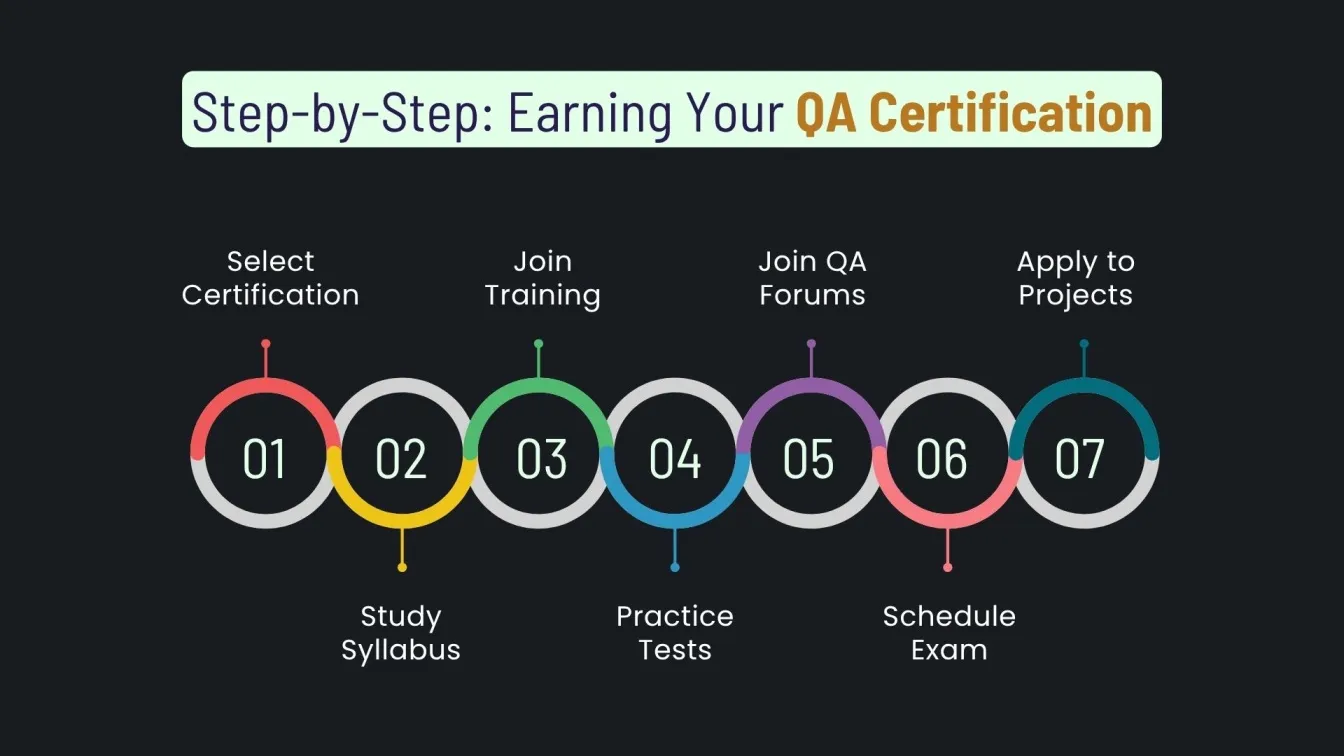
Practical Steps to Certification Success:
- Pick the Right Level: Choose foundation for beginners, advanced or automation for experienced testers.
- Review the Syllabus: Download official ISTQB or QAI exam guides to understand topics and format.
- Join Quality Training: Enroll in trusted courses on Udemy, Simplilearn, or similar platforms.
- Practice Mock Tests: Use timed quizzes to boost accuracy and identify weak spots.
- Join QA Communities: Engage on LinkedIn groups and forums for tips and peer support.
- Schedule Your Exam: Book your test only when fully confident and prepared.
- Apply Skills Practically: Gain real-world experience by working on live testing projects.
By focusing on areas like automation testing, mobile applications, API testing, performance testing, and Acceptance Testing, testers can confidently clear any Certification exam, including specialized paths like AI Testing Certification, DevOps Testing Certification, or Advanced Technical Test Analyst roles. Understanding the Software Testing Life Cycle and practicing Mobile Testing and User Acceptance Testing also ensures better results.
People Also Ask
👉 Which software testing certifications do employers prefer the most?
Employers widely prefer certifications like ISTQB Certified Tester Foundation Level (CTFL), Certified Software Tester (CSTE), and CAST, as they validate core QA skills, structured testing knowledge, and adherence to global quality assurance standards.
👉 How do certifications like ISTQB CTFL and CAST differ in scope?
ISTQB CTFL aligns with global QA standards and theory, while CAST is focused with more emphasis on hands-on testing and practical application.
👉 Do software testing certifications improve hiring decisions and project quality?
Yes, certifications help organisations confidently assess candidate skills, reduce onboarding time, and improve overall software QA testing outcomes leading to fewer defects and more stable, high-quality releases.
👉 How can organisations choose the right certifications for their QA team?
Organisations should match certifications to QA roles ISTQB Test Manager for leads, CT-TAE for automation testers, and Agile Tester for Agile teams to boost testing efficiency and quality.
👉 Which certifications are best for test automation specialists?
Top certifications include Certified Tester Test Automation Engineer (CT-TAE), Certified Software Test Automation Specialist (CSTAS), and ISTQB Advanced Test Automation Engineer, all of which focus on frameworks, scripting, and CI/CD alignment.



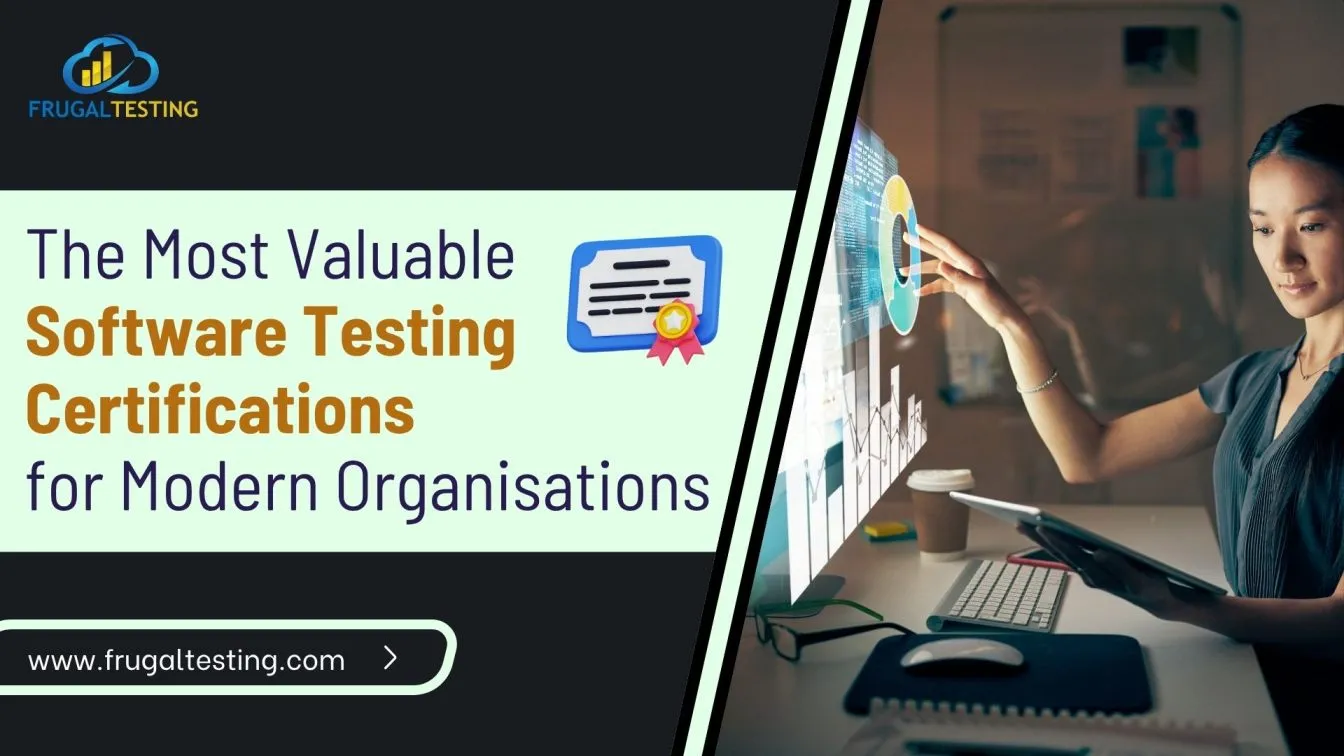

%201.webp)

